
The Vice-Chair for Research at the Cleveland Clinic Neurological Institute discussed topline results from the EMPhASIS trial of IMU-838.

The Vice-Chair for Research at the Cleveland Clinic Neurological Institute discussed topline results from the EMPhASIS trial of IMU-838.

"Mind Moments," a podcast from NeurologyLive, brings you exclusive interviews with Stephanie J. Nahas, MD; Bruce Cree, MD, PhD, MAS; Sana Somani, MD, MBBS; Hubert Fernandez, MD; Daniel Ontaneda, MD, PhD; and Richard Gershon, PhD.

The director of the Center for Neurological Restoration at Cleveland Clinic provided an inside perspective on how the MANAGE-PD tool can effectively assist in the Parkinson disease screening process.
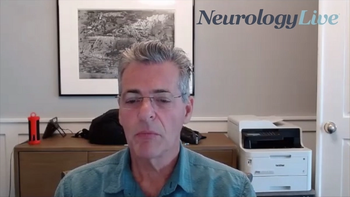
The Ralph and Luci Schey Chair and Director of the Schey Center for Cognitive Neuroimaging at Cleveland Clinic, outlined the different tests that make up the MSPT battery.

The director at AbbVie discussed a subgroup analysis of the phase 3 ADVANCE study of atogepant in patients with migraine and its benefit on patient-reported outcome measures.

The director of the MedStar Georgetown Headache Center spoke to the considerations she makes in determining when patients with migraine may need a nonoral therapy to address their disease.

The assistant professor of neurology at the Weill Cornell Brain and Spine Center discussed his presentation at AAN 2021 evaluating racial disparities in smoking cessation among stroke survivors.

The director of the MedStar Georgetown Headache Center spoke to the efficacy and application of a new formulation of the longstanding agent dihydroergotamine in the treatment of migraine.
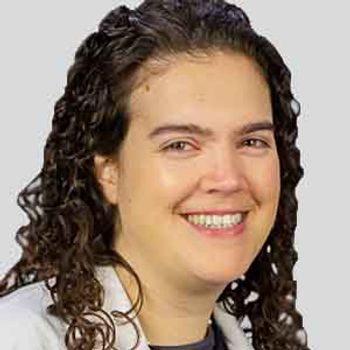
In addition to a number of positive attributes stemming from telehealth use, most providers claimed they were interested in digitally prescribing headache apps and remotely monitoring patient symptoms.

The vice chair for research at the Northwestern University Feinberg School of Medicine discussed how the cognitive mobile toolbox can be used to assess cognition in all populations.
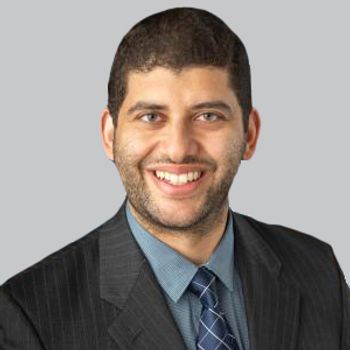
Three patients included in the study showed positive trends across both I-RODS and Jamar grip strength following treatment with lenalidomide.
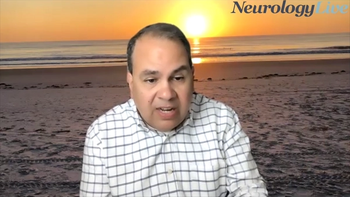
The professor of neurology at Mayo Clinic detailed ways to address social determinants of health and the gaps in care for patients with epilepsy.

Researchers compared Neuro-QoL scores between patients treated with natalizumab and ocrelizumab, another high-efficacy treatment for MS.

The clinical research director at the UCSF Multiple Sclerosis Center discussed the findings of the long-term open-label assessment of inebilizumab in neuromyelitis optica spectrum disorder.

Improvement was statistically significant for Cognition and the Global Executive Composite score, where approximately twice as many patients achieved clinically meaningful improvement.

Neurology News Network for the week ending April 24, 2021.

The associate professor and director of the Headache Medicine Fellowship Program at Thomas Jefferson University detailed the reasons fremanezumab stands out among a crowded migraine treatment landscape.

The associate professor of neurology and neurologist at Duke University discussed the positive results of nipocalimab, a monoclonal antibody, in patients with myasthenia gravis.

The MTB is built to safely, remotely, and effectively collect data from assessments that measure the executive function, language, memory, and processing speed of adults, and can be captured via smartphone.

The therapy has fewer off-target effects on kinases and may be better-tolerated than other DHODH inhibitors for patients with relapsing MS.

The findings add to the body of evidence for use of antiplatelets in patients with cerebral amyloid angiopathy.

The director at AbbVie discussed a number of abstracts presented at AAN 2021 involving atogepant and its phase 3 ADVANCE study.

Refractory seizures were more prevalent in hemorrhagic stroke although seizure-free rates were low overall in patients with post-stroke seizures.

Researchers saw the least amount of adverse events and the least time to stable dose in participants entering the study with SXB treatment.

Researchers from the University of Utah analyzed the use of their telestroke system with 27 outside “stroke” facilities.

The neurologist at University of Utah discussed his research presented at AAN 2021 on telestroke’s accuracy of differentiating between acute ischemic stroke and mimics.

Patients in the randomized controlled trial and the open-label extension treated with inebilizumab experienced similar rates of being attack-free, extending as far as 4 years.
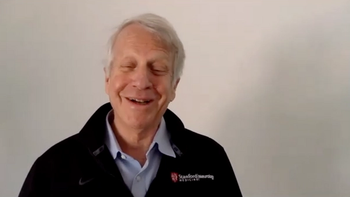
The professor of neurology and Neurological Sciences, Pediatrics, and Genetics at Stanford Medicine discussed the ULTIMATE trial data presented at the 2021 AAN Annual Meeting.

The professor of neurology at Mayo Clinic discussed the need for understanding more about how social determinants of health can impact epilepsy treatment delays.

The dean at the University of Exeter Medical School discussed the questions related to treating dementia-related psychosis and the options available.